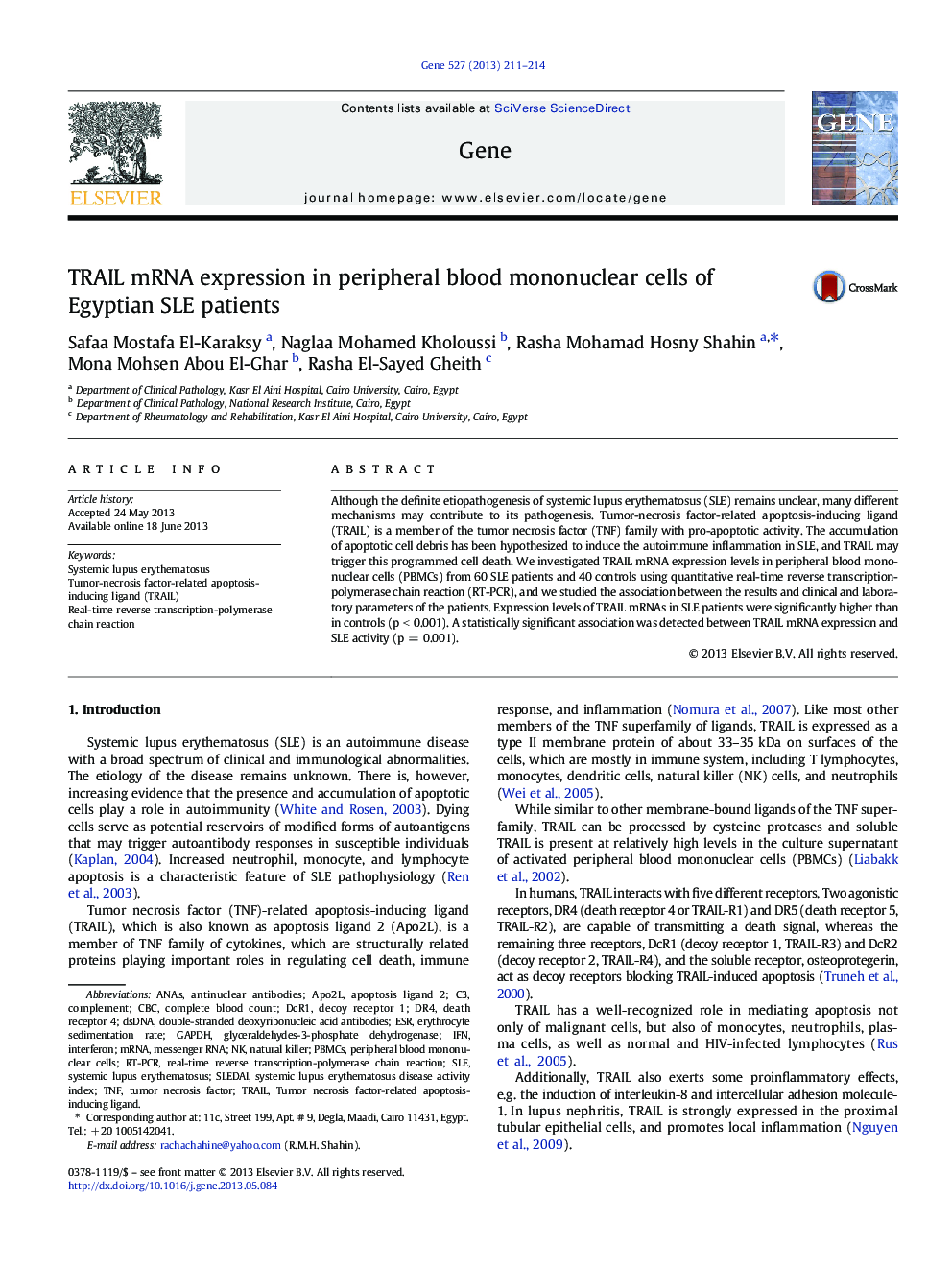| کد مقاله | کد نشریه | سال انتشار | مقاله انگلیسی | نسخه تمام متن |
|---|---|---|---|---|
| 5906272 | 1159967 | 2013 | 4 صفحه PDF | دانلود رایگان |

- TRAIL could be involved in the pathophysiology of SLE.
- There was higher expression of TRAIL mRNA in PBMCs from SLE patients than controls.
- There was an association between expression level of TRAIL mRNA and SLE activity.
- Further studies are necessary to clarify the role of TRAIL in SLE patients.
Although the definite etiopathogenesis of systemic lupus erythematosus (SLE) remains unclear, many different mechanisms may contribute to its pathogenesis. Tumor-necrosis factor-related apoptosis-inducing ligand (TRAIL) is a member of the tumor necrosis factor (TNF) family with pro-apoptotic activity. The accumulation of apoptotic cell debris has been hypothesized to induce the autoimmune inflammation in SLE, and TRAIL may trigger this programmed cell death. We investigated TRAIL mRNA expression levels in peripheral blood mononuclear cells (PBMCs) from 60 SLE patients and 40 controls using quantitative real-time reverse transcription-polymerase chain reaction (RT-PCR), and we studied the association between the results and clinical and laboratory parameters of the patients. Expression levels of TRAIL mRNAs in SLE patients were significantly higher than in controls (p < 0.001). A statistically significant association was detected between TRAIL mRNA expression and SLE activity (p = 0.001).
Journal: Gene - Volume 527, Issue 1, 15 September 2013, Pages 211-214